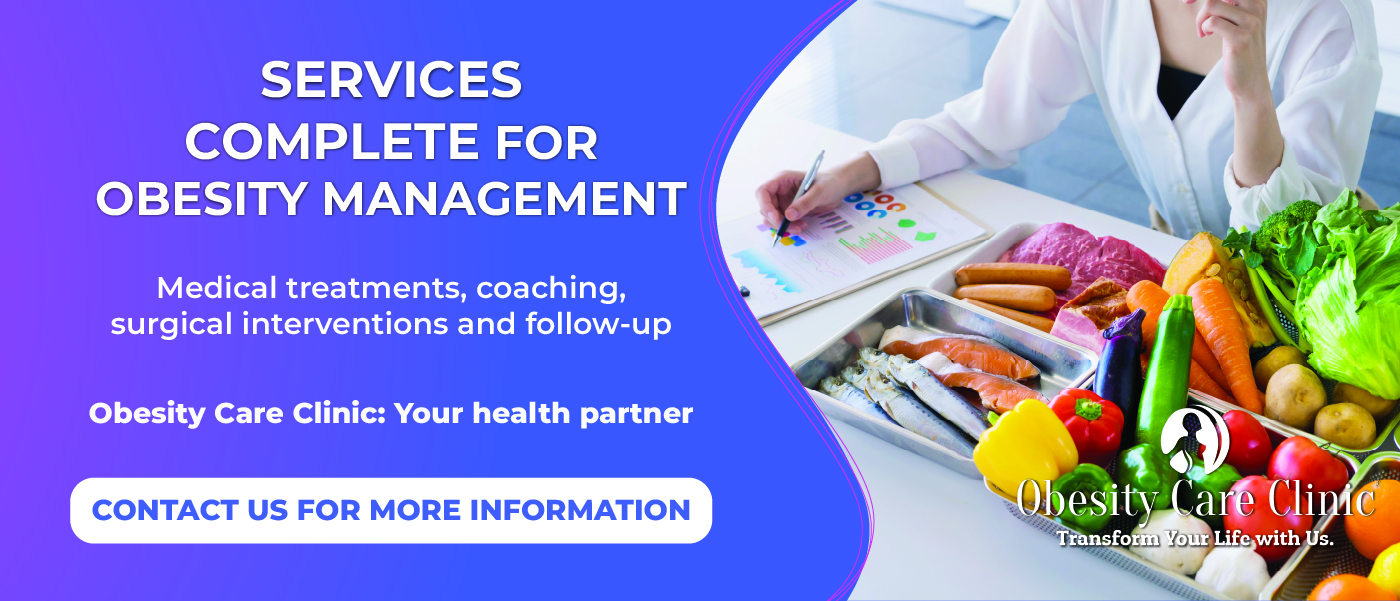Introduction
Weight loss surgery, also known as bariatric surgery, has emerged as a transformative solution for individuals struggling with severe obesity and obesity-related comorbidities such as type 2 diabetes, hypertension, sleep apnea, and cardiovascular disease. While surgery can dramatically improve health outcomes, its success hinges on meticulous preparation—particularly in the form of a well-structured pre-operative (pre-op) diet.
The pre-op diet is more than just a recommendation; it is a clinical necessity. Implemented in the days or weeks leading up to surgery, this diet plays a central role in reducing surgical risks, improving patient safety, and laying the groundwork for long-term behavioral change. It also allows clinicians to assess patient readiness and compliance—key indicators of post-operative success. This article explores the physiological, nutritional, psychological, and clinical importance of the pre-op diet, supported by evidence and practical strategies.
Understanding Pre-Op Diets: An Overview
Pre-operative diets are specifically designed to optimize a patient’s body for surgery. Bariatric procedures, such as sleeve gastrectomy and Roux-en-Y gastric bypass, are performed laparoscopically and require clear surgical visibility and maneuverability within the abdominal cavity. In obese patients, the liver is often enlarged and fatty—a condition known as hepatic steatosis—which can obstruct access to the stomach and complicate the procedure.
A typical pre-op diet aims to:
- Reduce liver size (liver volume can decrease by 10–20% within 2–4 weeks)
- Lower intra-abdominal fat
- Enhance insulin sensitivity
- Improve cardiovascular and respiratory status
- Initiate psychological and behavioral adaptation to post-surgery eating habits
These goals are achieved through a high-protein, low-carbohydrate, calorie-restricted regimen. Some pre-op plans may consist primarily of meal replacement shakes or liquid diets to tightly control nutrient intake and minimize variables.
The duration of the diet varies depending on patient-specific factors such as BMI, metabolic profile, and type of surgery. Most patients follow a pre-op plan for at least 1–3 weeks. Patients with very high BMIs (over 50 kg/m²) may require longer periods to achieve sufficient liver shrinkage and fat loss.
Physiological Benefits of a Pre-Op Diet
The benefits of a pre-op diet are not just theoretical—they are physiologically profound. The most immediate and critical advantage is the reduction of liver size. In obese individuals, the liver often accumulates excessive fat, which can make it friable and difficult to retract during surgery. A smaller liver improves the surgeon’s field of vision and allows safer and more efficient access to the stomach.
Liver Size and Surgical Access
Studies show that pre-op diets can lead to substantial reductions in liver volume. For example, two weeks on a very-low-calorie diet (VLCD) of 800–1,200 kcal/day can decrease liver volume by 15–25%. This reduction is attributed to the depletion of glycogen and intrahepatic fat stores, which accumulate due to high carbohydrate intake and insulin resistance【1】.
Insulin Sensitivity and Anesthesia
Obesity is closely associated with insulin resistance and metabolic syndrome. A pre-op diet can enhance insulin sensitivity and improve glucose regulation, which helps lower the risk of anesthesia-related complications such as hypoglycemia or poor wound healing. Better-controlled blood glucose levels also reduce infection rates and promote faster post-operative recovery.
Cardiopulmonary Function
Weight loss achieved during the pre-op phase alleviates pressure on the cardiovascular and respiratory systems. Even modest reductions in body weight (5–10%) can improve lung function, blood pressure, and heart rate, which is particularly important for anesthesia safety and post-operative oxygenation.
Nutritional Components of an Effective Pre-Op Diet
An effective pre-operative diet balances caloric restriction with adequate nutrient intake. The key components include:
1. Caloric Restriction
The calorie target typically ranges from 800 to 1,200 kcal/day, depending on the patient’s metabolic rate and degree of obesity. This creates an energy deficit that mobilizes fat stores, leading to weight loss and reduced intra-abdominal fat.
2. High-Protein Intake
Protein is emphasized for several reasons:
- It preserves lean body mass, which is essential for surgical recovery.
- It promotes satiety, making calorie restriction more sustainable.
- It supports immune function and wound healing.
Patients are often advised to consume 60–100 grams of protein per day, primarily from lean meats, dairy, soy products, or medical-grade protein supplements【2】.
3. Low Carbohydrates
Simple carbohydrates (e.g., sugar, white bread) are eliminated to reduce glycogen and fat in the liver. Complex carbohydrates like leafy greens or legumes may be allowed in moderation. Lowering carbohydrate intake also stabilizes blood glucose and decreases hunger spikes.
4. Micronutrients
Many obese patients already have deficiencies in iron, vitamin D, B12, and calcium—nutrients that are further impacted by bariatric surgery. A pre-op diet should include:
- Multivitamin supplementation
- Calcium (with vitamin D)
- Iron and B12 (especially for menstruating women or vegetarians)
Micronutrient sufficiency enhances surgical outcomes and minimizes post-op complications.
5. Hydration
Adequate fluid intake is vital to prevent dehydration, constipation, and electrolyte imbalance. Patients are encouraged to drink at least 1.5 to 2 liters of water daily. Carbonated drinks, caffeinated beverages, and fruit juices should be avoided due to their negative impact on gastric volume and glucose levels.
Psychological and Behavioral Preparation
Weight loss surgery requires lifelong commitment to dietary changes. The pre-op diet phase offers a unique opportunity to cultivate habits that will be essential after surgery.
Behavioral Reprogramming
Adherence to a pre-op diet helps patients practice:
- Portion control
- Meal timing
- Avoiding emotional eating
- Reading nutrition labels
- Drinking without meals (required post-op)
By simulating the eating restrictions of the post-op lifestyle, patients reduce the shock of post-surgical adaptation and gain confidence in their ability to make changes.
Mental Health and Counseling
Psychological readiness is a strong predictor of surgical success. Pre-operative counseling can uncover issues such as:
- Binge eating disorder
- Body dysmorphia
- Anxiety and depression
- Unrealistic expectations about surgery
Cognitive-behavioral therapy (CBT) and motivational interviewing are useful techniques to support patients during this transition【3】.
Compliance and Screening
A patient’s ability to follow the pre-op diet is a valuable tool for clinicians to assess their commitment. Noncompliance may suggest that the individual needs more time or support before undergoing surgery. In some cases, surgery may be postponed to ensure the patient is psychologically and behaviorally prepared.
Case Studies and Clinical Evidence
The clinical value of the pre-op diet has been well established through various studies and case reports.
Study 1: Very-Low-Calorie Diets and Liver Reduction
In a randomized controlled trial, Colles et al. (2006) demonstrated that a VLCD resulted in a 16% reduction in liver volume within two weeks. MRI scans confirmed that both subcutaneous and visceral fat were significantly decreased, which facilitated laparoscopic access and improved surgical outcomes【4】.
Study 2: Pre-Op Diet and Surgical Risk Reduction
Busetto et al. (2008) found that patients who lost at least 5% of their total body weight prior to surgery had fewer intraoperative complications, including bleeding, infection, and extended operative time. Additionally, these patients recovered more quickly and were discharged sooner than their counterparts who did not follow the diet【3】.
Case Series: Patient Compliance and Weight Maintenance
A bariatric center in the United States reviewed outcomes for 100 patients who underwent Roux-en-Y gastric bypass. Patients who complied with the pre-op diet and lost more than 8% of their excess body weight prior to surgery showed better adherence to post-op dietary guidelines and maintained more weight loss at the one-year mark compared to non-compliant patients【5】.
Conclusion
The pre-op diet is a crucial preparatory step that significantly enhances the safety, efficacy, and long-term success of bariatric surgery. Far from being a simple weight loss tool, it is a multi-dimensional intervention that influences:
- Surgical mechanics by shrinking the liver and abdominal fat
- Metabolic health through improved insulin sensitivity and nutritional status
- Behavioral readiness by fostering sustainable dietary habits
- Psychological resilience by supporting mental health and motivation
- Clinical decision-making by identifying compliant, motivated candidates
A collaborative, interdisciplinary approach—combining medical supervision, nutritional counseling, and psychological support—is essential to maximize the benefits of the pre-operative period. Patients who commit to the pre-op diet are not only preparing for surgery—they are investing in their future health.
References
- Van Gaal, L. F., et al. (2011). Management of obesity in adolescents: lifestyle, drug treatment, and bariatric surgery. Nature Reviews Endocrinology.
- Paulson, Q. X., et al. (2010). Comparison of high-protein versus standard-protein very low-calorie diets: a randomized controlled trial. American Journal of Clinical Nutrition.
- Busetto, L., et al. (2008). Preoperative weight loss and outcome of laparoscopic gastric bypass. Obesity Surgery.
- Colles, S. L., et al. (2006). Preoperative weight loss with a very-low-energy diet: quantitation of changes in liver and abdominal fat by serial imaging. American Journal of Clinical Nutrition.
- Sweeney, B., et al. (2020). Impact of preoperative diet on surgical outcomes in bariatric patients. Bariatric Times.





